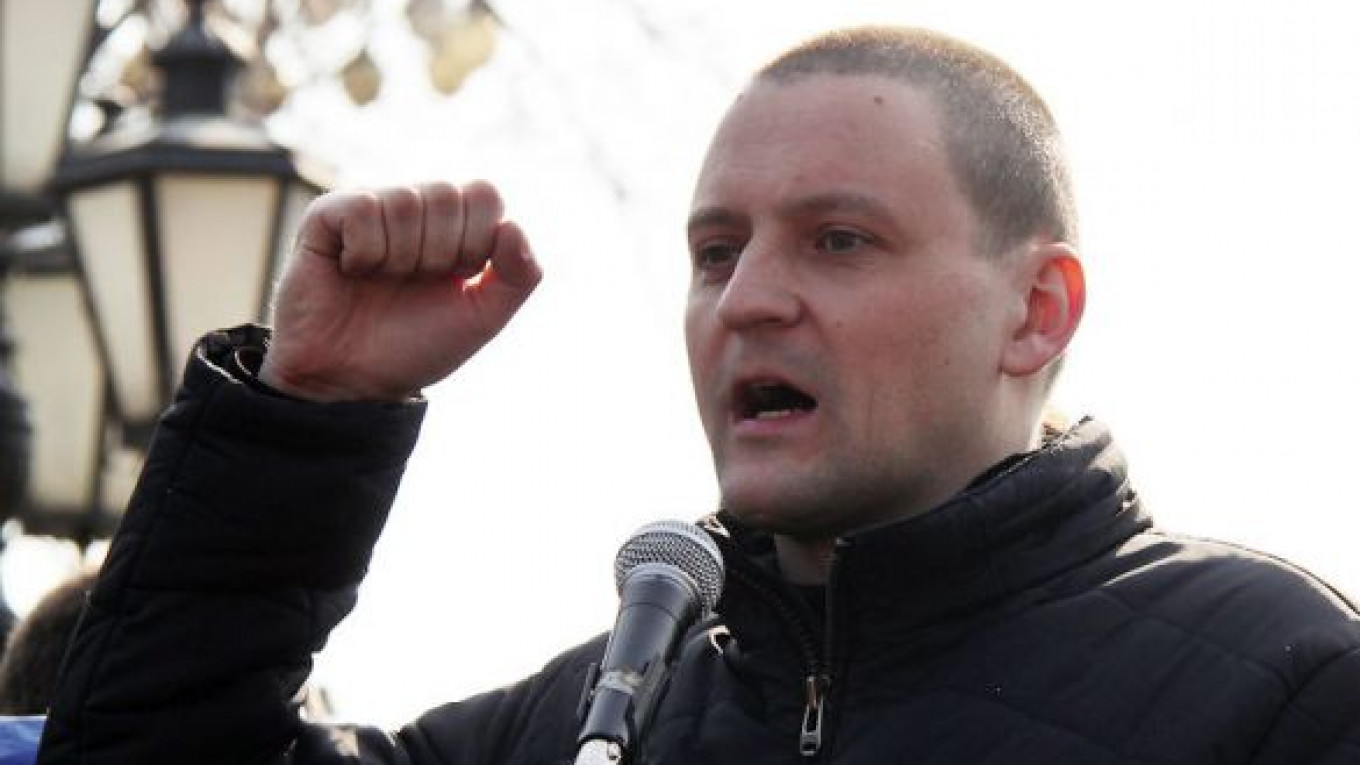The State Duma will vote Tuesday in a first reading on President Vladimir Putin's draft bill to grant amnesty to certain categories of prisoners, a piece of legislation that could exonerate high-profile detainees despite what critics say are its narrow criteria.
As part of an effort to free space in its crowded prisons and soften the country's image prior to the 2014 Sochi Winter Games, Russia has pledged to release a carefully selected array of prisoners in honor of the 20th anniversary of the adoption of the country's Constitution.
According to Putin's decree, those who could be eligible for the amnesty include women with young children, war veterans, police officers, elderly people, and first-time offenders who have not committed violent crimes and have been sentenced to no more than five years in prison. The Federal Prison Service announced that the measure could affect between 20,000 and 22,000 prisoners within a six-month period of it being implemented.
The head of the Duma's Legislation Committee, Pavel Krasheninnikov, announced that the bill could be adopted as early as Wednesday and should begin to be enforced by the end of the year, Itar-Tass reported. If passed by the Duma as expected, it would then have to be taken up by the Federation Council and be signed by Putin before taking effect.
Some human rights activists are disappointed about certain omissions in Putin's bill. In its current form the amnesty would not apply, for example, to activists Sergei Udaltsov and Leonid Razvozzhayev, who are suspected of plotting “riots” at an authorized opposition rally on Bolotnaya Ploshchad in May 2012.
Krasheninnikov said other activists charged in connection with the Bolotnaya Ploshchad protest, along with those charged over a Greenpeace demonstration in the Arctic in September, could be eligible for the amnesty, but only after the conclusion of judicial proceedings.
Pussy Riot members Nadezhda Tolokonnikova and Maria Alyokhina may be eligible for release, but they are already set to get out of prison in March. Former billionaire oil tycoon Mikhail Khodorkovsky, whose sentence ends in August, is not expected to be affected by the amnesty.
Lev Ponomaryov, a veteran rights campaigner who heads the For Human Rights group, gave muted praise to Putin's proposed measure.
“Any humanitarian action by a state must be commended,” Ponomaryov said by telephone. “But Putin's amnesty — which is not broad like he says it is — is not a progressive political event. It rather shows complete disregard for civil society's opinion.”
Ahead of the Duma's plenary session Tuesday morning, Ponomaryov plans to hold a solitary picket outside the parliament building to protest the limited scope of the current bill.
The amnesty could also exonerate former Defense Minister Anatoly Serdyukov from the negligence charges he faces for purportedly embezzling 56 million rubles, unless his former aide testifies against him.
The Investigative Committee summoned Serdyukov on Friday to tell him that the inquiry was over, and that negligence was the only official charge against him, Kommersant reported Monday. Earlier, investigators said an extensive inquiry might result in more serious charges.
Only testimony from his former aide, Yevgenia Vasilyeva, the primary defendant in the Oboronservis corruption case, could prevent Serdyukov from going free, an unidentified individual told Kommersant.
Dmitry Gudkov, an opposition Duma deputy and one of the leaders of the anti-Putin protest movement in 2011 and 2012, criticized the amnesty bill for applying to convicted police officers and officials.
“Crooks who steal from the state budget and sadistic torturers who tortured detainees to death will be released,” Gudkov wrote in his blog. “And the amnesty does not apply to political prisoners who bumped into policemen.”
Russia periodically grants amnesty to select groups of prisoners, often to mark important anniversaries in its history. In May 2000, in honor of the 50th anniversary of the Great Patriotic War, Russia amnestied almost 188,000 people, according to the Russian Legal Information Agency.
Contact the author at g.tetraultfarber@imedia.ru
A Message from The Moscow Times:
Dear readers,
We are facing unprecedented challenges. Russia's Prosecutor General's Office has designated The Moscow Times as an "undesirable" organization, criminalizing our work and putting our staff at risk of prosecution. This follows our earlier unjust labeling as a "foreign agent."
These actions are direct attempts to silence independent journalism in Russia. The authorities claim our work "discredits the decisions of the Russian leadership." We see things differently: we strive to provide accurate, unbiased reporting on Russia.
We, the journalists of The Moscow Times, refuse to be silenced. But to continue our work, we need your help.
Your support, no matter how small, makes a world of difference. If you can, please support us monthly starting from just $2. It's quick to set up, and every contribution makes a significant impact.
By supporting The Moscow Times, you're defending open, independent journalism in the face of repression. Thank you for standing with us.
Remind me later.






